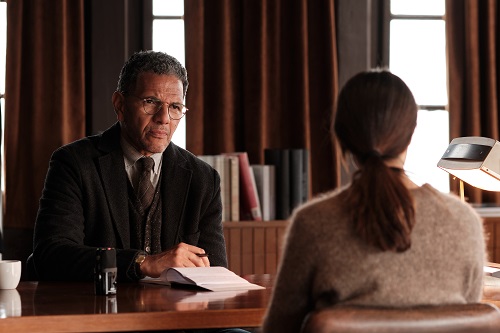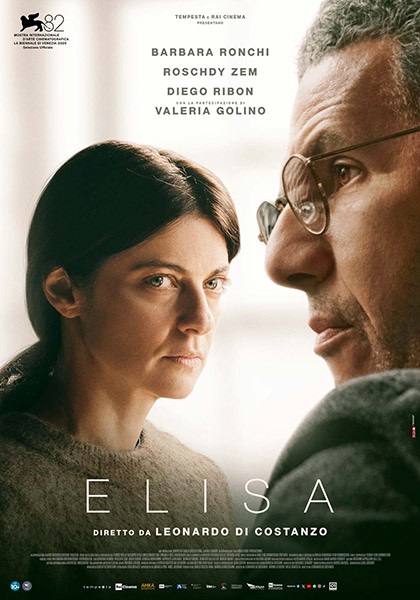Di Costanzo’s Psychodrama to Premiere in Venice
TORONTO – Two-time David Di Donatello award winner, Lorenzo Di Costanzo, is returning to compete for the Golden Lion at the 82nd Venice International Film Festival. His latest film Elisa, starring Barbara Ronchi is set to have its world premiere at the Biennale in September. And Ronchi’s track record for intense and emotionally resonant performances earns another notch with her portrayal in this intimate and disturbing psychodrama.
While Di Costanzo started out as a documentary filmmaker in the 90s, Elisa is his fourth successive narrative film – and his penchant for delving into complex psychological themes hits its stride with this film. Ronchi plays a woman (Elisa), who kills her sister and is imprisoned for ten years. Elisa’s memory of the horrid crime is fragmented until she meets with a criminologist who is conducting a study on family homicides.
The film is loosely based on studies and conversations between Criminologists Adolfo Ceretti and Lorenzo Natali – which were published in the essay “Io Volevo Ucciderla”. Di Costanzo, alongside his writing partners Bruno Oliviero and Valia Santella, delve into complicated dynamics of severely disaffected family members – a theme that Italian cinema seems to have mastered. And which they seamlessly blend into nearly every genre, including their comedies.
“In Elisa, I tried to convey the complexity of a figure capable of pain, coldness, manipulation, and ultimately a very human desire to be heard. I hope the film raises questions rather than offers answers, and that it can inspire in the audience the same ethical and emotional disorientation that guided my gaze while writing and directing”, says Di Costanza. The Director’s previous film The Inner Cage (2021) somewhat inspired his efforts to tell or more intimate and personal story on the subject of crime.
The Inner Cage told the story of a group of prisoners and guards awaiting transfer from a remote prison. But with Elisa, he ventures into “a more intimate and disturbing direction”. The ensemble nature of The Inner Cage had Di Costanza more focused on the act of crime itself and the fallout, while with Elisa he preferred to explore “the inner journey of the perpetrator”.
“At the heart of the film are conversations between a famous criminologist who visits this penitentiary where Elisa has been detained for 10 years. Elisa killed and burned her sister’s body and attempted to kill her mother,” says the film’s Producer Cresto-Dina. A shocking truth emerges from these conversations with Elisa, as Di Costanza attempts to surface a deep pain within his titular character, “that perhaps marks the beginning of her redemption”.
It’s not difficult to see why Di Costanza, and other Italian storytellers, tend to place complex psychological themes within the framework of family dramas. From middle school onward they’re introduced to scandalous family dramas that played out inside of Imperial palaces, which included Emperors who disposed of dissenting family members. In this context, Elisa seems to be a modern reflection on an old tale.
Images courtesy of Tempesta and Rai Cinema
Massimo Volpe is a filmmaker and freelance writer from Toronto: he writes reviews of Italian films/content on Netflix






